- Home
- Bill James
World War Two Will Not Take Place Page 21
World War Two Will Not Take Place Read online
Page 21
Weigel very looked bad. ‘Something?’ Valk said.
‘Andreas, I stress this is unconfirmed so far,’ Weigel said.
‘Understood.’ Valk was not going to become grandiose and haughty because a rumour said he had been pushed up to Colonel following Knecht’s disgrace.
Weigel said: ‘The fully clothed bodies of two males in the twenty–thirty age group have been recovered from the sea at Milford Haven – the Cleddau estuary – in South West Wales.’
Valk was standing near Weigel’s desk and felt some of his balance go for a few moments. ‘Yes?’ he said. ‘Is this in any way to do with us?’
‘They were carrying German passports in the names of V Mair and BL Schiff. There was also an overturned small boat. In two capacities I get to hear of this – Passport Control and the other.’
Valk had very little voice to play with for a moment. ‘But not confirmed, you say,’ he muttered.
‘It will be.’
God, those two, with their cheek and insolence and determination to supply their own orders! He had been right to regard them as dangerous fools. Would their mad actions besmirch him, as their commander? Might this prevent his step up? ‘Milford Haven?’ he said. ‘What, who, is at Milford Haven?’
‘Their corpses were,’ Weigel said. ‘The information, as I have it, is they seem to have been attempting a landing at one of the Victorian stone forts on islands in the Haven. Apparently, there have been rumours around among the local population for a while that secret rearming of these installations is in hand to repel possible invasion. It’s rubbish, but the suggestion is, Schiff and Mair had been sent to spy on such preparations and report. Being unfamiliar with boats and currents and so on, they had an accident.’
‘Victorian forts? On a western coast? It’s absurd.’
‘That’s the yarn.’
‘I gave no such order,’ Valk said. ‘How could I give such an order? They were supposed to be amassing a case against Lionel Paterin so Goebbels can throw shit at him if things turn unpleasant. Drowned in Milford Haven?’
‘I didn’t say drowned in Milford Haven. The bodies and the boat were found in Milford Haven. Quite different.’
Now, Valk’s breath went for a moment. He sat down. ‘What is it you mean?’ he said. ‘Drowned elsewhere? Not an accident? Drowned by others? Deliberately killed?’
‘It’s a possibility, as I’m told. And perhaps you’ll have difficulty arguing they couldn’t have been there to carry out that operation because you mustn’t say, must you, what they were really at?’
‘I’ve said they were handling other aspects of the visit.’
‘Were you believed?’
‘How can anyone tell whether they’re believed when talking to those insulting people from Bilson’s Section?’
‘And I’m told Mair and Schiff didn’t come back to their embassy quarters overnight.’
Valk wondered now whether he could define what had baffled him before – the tone of Baillie’s and Fallow’s conversation not long ago. Had they already known, somehow, about the deaths of Mair and Schiff? Yes, somehow. God, somehow. Baillie, Fallows – both in the past involved with unexplained deaths, according to the dossiers. They had seemed sceptical when he spoke of what Mair and Schiff were doing, and where. Beyond the sceptical? He’d suspected again that they were teasing him. Or perhaps it had been more than teasing. This time he had more evidence. Ridiculing him? The British enjoyed games. They’d deliberately alarmed him with the prospect of Bilson at the book depository on the day of the procession, because they’d known there would never be any procession. Otherwise, would they have alerted Valk to the likelihood of their chief standing – obsessively compulsively – at the perfect high window to annihilate Hitler? By talking about it they’d have jeopardized the plot. No. Baillie and Fallows had known there could be no state visit after the Milford Haven discoveries. The publicity was sure to shatter that plan. Germany would look disgustingly scheming, hostile, two-faced, deceitful.
‘I’d assumed Mair and Schiff had gone to a pleasure house for the night,’ Valk said.
‘Others assume differently,’ Weigel said.
And the next morning Valk saw early what others assumed. Discovery of the bodies was headlined in every national newspaper and most likely in the regionals, also:
Revealed: a dirty spy operation behind the smiles.
Munich accord destroyed by spy deaths.
German spies drown seeking secret fortress facts.
Jerry spies dead in coastal defences drama.
No state visit after dead spy scandal?
A leading article in the Daily Telegraph said: ‘Even while preparations were well advanced for the state visit of the Führer, Herr Hitler, next year, his country was apparently conducting an operation to probe the defences of Great Britain. To what purpose? Only one seems possible: Germany expects to make war against us and attempt an invasion, and is systematically charting the locations and quality of possible resistance so that such resistance can be nullified as part of a concerted attack. The French carried out a farcical landing in this area of Wales during the Napoleonic wars, although it is the far coastline from the continent. The implication of these spies’ activities is much graver, even if their doomed forts expedition was prompted by false rumour of rearmament there. Their behaviour and the behaviour of those who sent them is gross duplicity. This is flagrant cynicism, perhaps made the more abominable by occurring so near to Christmas.
It is difficult now – in fact, impossible – to conceive how a state visit by Hitler to this country could take place. The people of London, indeed of Britain, would not want it; would find the notion intolerable. That reaction is certain, despite the king’s apparent continuing wish to achieve a lasting friendship with the Führer. In this, the king is deeply at variance with the bulk of his people. They will now wish the government to do everything it can to put this country into a condition of readiness for possible war with a treacherous potential enemy. The Munich agreement may have looked solid, positive and hopeful at the time. That time has gone. Henceforth, only a war footing for Britain is feasible.
THIRTEEN
Kale-Walker finally opted for the sea, not an aircraft. He considered it safer, given tolerable weather. Mount had wondered about that. Did the North Sea ever give tolerable weather in winter? How well was the coastline patrolled? But north from the mouth of the Elbe on a cloudy early January night a submarine, HMS Masthead, surfaced just ahead of the motor inflatable carrying Mount, Toulmin, Kale-Walker and its three-man crew. Kale-Walker had reassured Mount: Masthead, he said, routinely carried out such undercover, underwater-salvage operations. Its officers and men were expert in very tricky navigation and manoeuvring. Kale-Walker and the rubber dinghy crew weren’t bad at it, either. The embassy must contain all sorts of talents. The boat drew closer to the submarine.
The Masthead’s conning tower opened, and a couple of seamen came swiftly down on to its deck. One of the dinghy’s crew hurled a line. The dinghy’s engine idled. A submariner caught the rope, and the two of them pulled on it and drew the smaller vessel alongside. Mount shook hands in farewell with Kale-Walker and the crew. Another man from the submarine brought leather harnesses fixed to safety-lines and threw the harnesses into the motor boat. Toulmin and Mount fixed these on over their life jackets. The weather was ‘tolerable’, in Kale-Walker’s opinion. He’d probably use the word as long as the dinghy was not swamped. But a worrying swell would make the transfer difficult. Kale-Walker said: ‘I and the rest of the embassy will probably follow to Britain soon, but in an orderly, protected, official withdrawal at the start of the war.’
‘Whatever your decision on the Steglitz apartment, I’ve left it clean and in proper order,’ Mount replied.
‘The chair count is right again,’ Toulmin said.
‘Well, yes, I know,’ Kale-Walker said. ‘Didn’t Equipment, London arrange for—?’
‘Oh, certainly, all present and correct,’ Mo
unt said.
‘The three of us saw to that,’ Toulmin said.
‘Which three?’ Kale-Walker said.
‘Olga, Inge and myself.’
‘Those names? Knecht apparently got something from a girl called Inge,’ Kale-Walker replied. ‘Or it might be Olga.’
‘I’ve told Sam to give himself some careful scrutiny,’ Mount said.
‘We’ll try to bring any of your family out who want to get to Britain, Sam,’ Kale-Walker said. ‘But it’s hard to know how the German government will behave. Your family might not suffer, just as the Kordts haven’t suffered, though they constantly criticize and try to undermine the regime.’
‘Well, everything seemed all right at my brother’s wedding,’ Toulmin said.
‘Yes, that might be a good omen,’ Kale-Walker said.
The motor boat’s engine picked up, and she moved closer still. When the swell was right, Mount leapt on to the Masthead’s hull. A pair of her seamen heaved on the safety line and pulled him up on to the deck. Toulmin followed. An officer in the conning tower with a megaphone called: ‘Careful, now, we don’t want another accident like that very nasty, almost unbelievable, tragedy at Milford Haven, do we? Yes, almost unbelievable. Which of you is which?’
‘This is Toulmin,’ Mount said.
‘Toulmin – that’s the name of an ancient clockmaker, isn’t it?’ a sailor said. ‘Is that his trade?’
‘Not quite,’ Mount said. ‘We’ll have to find him some other kind of job in Britain.’ He and Toulmin climbed into the conning tower and went down into the vessel. She began to move. A bell sounded. The order came to dive.
FOURTEEN
‘I am speaking to you today from Buckingham Palace. It is my final broadcast to you as your king. These have been a turbulent two years. I had thought at the end of 1936 that the worst of those difficulties had passed, and that the country had finally accepted me and my dear wife, as she now is. The public enthusiasm for my coronation last year and for our wedding seemed to confirm this.
‘But I now see this is not so. Certain very considerable differences continue between my people and me. Foremost among these is my wish to secure lasting goodwill with Germany. I hoped to dispel an enmity which began nearly twenty-five years ago. This wish I now know is not shared by the people of Britain. It is a barrier between you and me. In these circumstances it would be perverse of me to continue as your monarch. I shall therefore abdicate forthwith, and my wife and I will leave this country. My dear brother, Albert Frederick Arthur George, formerly Duke of York, assumes the kingship. He will be a new king for this coming new year, 1939, and many years that follow, using the title George VI, in honour of our late father, George V. God bless you all.’
FIFTEEN
Back in the Section, Mount said: ‘Did you two have anything to do with that Milford Haven episode? Those two – Mair and Schiff – they were trying to dig dirt about Lionel Paterin, weren’t they?’
‘A strange business, wasn’t it?’ Baillie said.
‘And with quite considerable consequences,’ Fallows said.
‘Yes,’ Mount said, ‘but—’
‘It’s the kind of situation you might have feared when you were in Germany, Marcus,’ Baillie said. ‘I mean, that a spy imbroglio would tear to bits relations between Germany and this country. But it has happened in reverse, hasn’t it? The spy mess-up is here in Britain, and it has badly darkened our relations with Germany. No visit.’
‘Perhaps,’ Mount said, ‘but how did—?’
‘I’m pretty sure SB wants a chat with you urgently,’ Baillie said.
And when Mount and Bilson talked, facing each other from armchairs in SB’s suite, he said: ‘A good operation over there, Marcus.’ And he did look cheery. ‘Also, we have developments here as well, of course. On two counts now, the state visit is obviously impossible. First, the German security apparatus is in a mess after that Knecht scandal and the Milford Haven episode. Knecht has been removed. It was expected that Major Valk would take over, but now he is tainted by the Milford Haven disaster, though he claims to have no knowledge of it. Berlin could not risk exposure of Hitler here when there is no outfit organized properly to defend him. As you’ll know, there are constant rumours of plans to assassinate him, perhaps on German soil, perhaps on ours. They apparently feared a sniper attack. Crazy, really, wouldn’t you say? I’m sure you would. How could such an efficient and committed sniper be found? And secondly, of course, the country absolutely rejects the idea of a state visit, following Milford Haven and the natural reaction of the Press to a spy campaign disgracefully linked to a gesture of friendship.’
‘It seems odd that those men should have been trying to get into an eyesore Victorian fort on the wrong side of Britain,’ Mount said.
‘Yes. Stack Rock Fort,’ Bilson replied. ‘Of course, Milford Haven has a venerable place in Britain’s past. Henry VII came back from exile in France via Milford to claim the throne. Nelson and Lady Hamilton were often there.’
SB did this sometimes when a subject was sensitive: start diversions. History could help. Mount gave him some back: ‘I gather these installations were known as “Palmerston’s follies” even at the time they were built – he being Prime Minister and in favour. Now, more folly?’
‘The fort, forts, were considered to have a modern defence potential, I believe.’
Mount thought he recalled that a while ago now Baillie – or was it Fallows? – had been in a Danish incident about local defences; a death? Fallows. ‘Surely, no secret rearming is taking place in the forts.’
‘Jerry’s mistake, clearly.’
‘I hear rumours that they didn’t actually drown in the Haven, sir, but might have been dumped there, already dead.’
‘As we understand it, they were drowned in an accident – having no experience of the sea and boats,’ Bilson said.
‘I reported to you from Berlin that they were after smear material about Paterin, I think,’ Mount said.
‘Yes, you did, you did, Marcus.’ And Mount deduced that this was not a topic to continue with. ‘The country’s morale is very good now,’ Bilson said.
Had that depended on the death of those two? They’d been committed to inquiries that someone had decided should be stopped. Who? Bilson? Fallows and Baillie acting independently? It looked as though nobody was going to discuss this. Occasionally, such office secrecy did operate, especially when unexplained deaths were involved. Perhaps Mount had been abroad for too long and seemed like a bit of a stranger to them all here now. They were guarded?
‘Morale is crucial, you know, Marcus. Ask any officer who has seen battle.’
‘Munich is corrected, isn’t it?’ Mount said.
‘Very inept boatmen,’ Bilson replied. ‘Such skills might not have been part of their training.’
‘Shall we see war now, sir, do you think?’ Mount replied.
‘Germany has turned away from us, and vice versa. Hitler will go for the agreement with Russia. I can visualize some of the newly urgent Berlin telegrams, can’t you? “There exist no real conflicts of interest between Germany and the USSR.” “The way seems open for a new sort of future for both countries.” Your and Toulmin’s excellent work has consistently pointed in that direction. Once this pact is secured, Germany will go into Poland.’
‘We can’t permit that. Not even Chamberlain would allow it uncontested.’
‘I’d say we’ll have world war two by August or early September.’
‘Yes?’ Mount said.
buttons">share

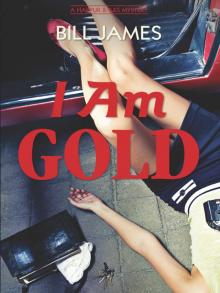 I Am Gold
I Am Gold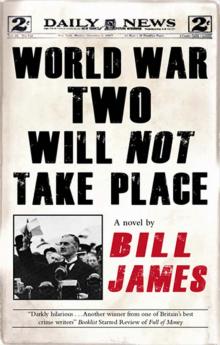 World War Two Will Not Take Place
World War Two Will Not Take Place Pix (Volume Book 24) (Harpur & Iles Mysteries)
Pix (Volume Book 24) (Harpur & Iles Mysteries)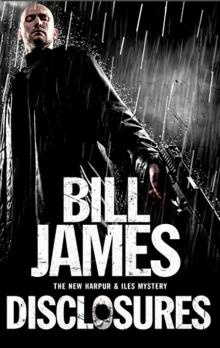 Disclosures
Disclosures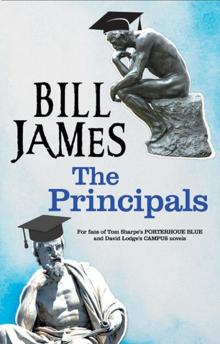 The Principals
The Principals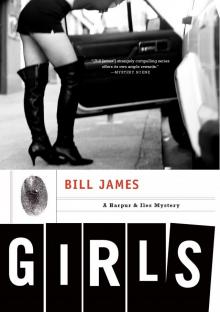 Girls
Girls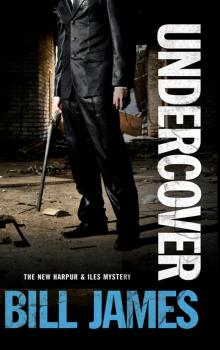 Undercover
Undercover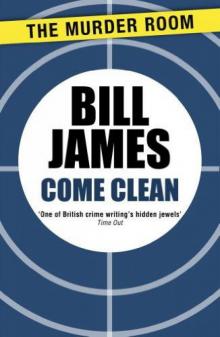 Come Clean (1989)
Come Clean (1989)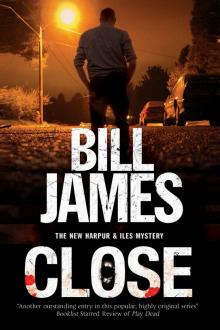 Close
Close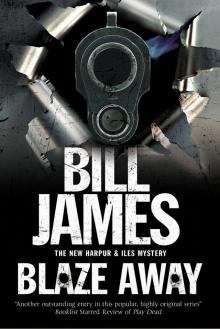 Blaze Away
Blaze Away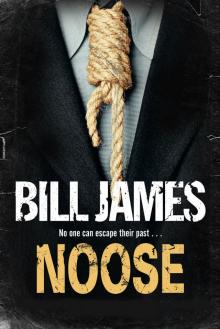 Noose
Noose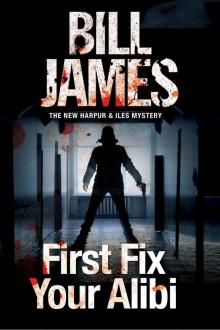 First Fix Your Alibi
First Fix Your Alibi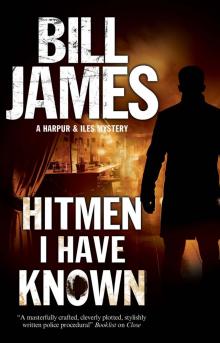 Hitmen I Have Known
Hitmen I Have Known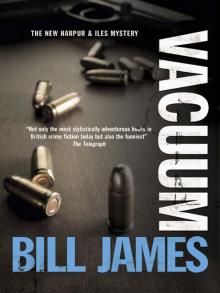 Vacuum
Vacuum Play Dead
Play Dead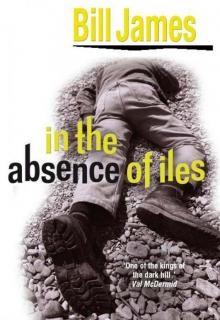 In the Absence of Iles
In the Absence of Iles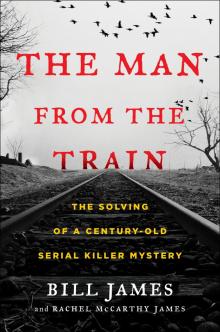 The Man from the Train
The Man from the Train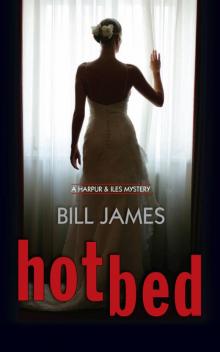 Hotbed
Hotbed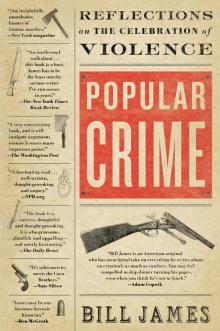 Popular Crime
Popular Crime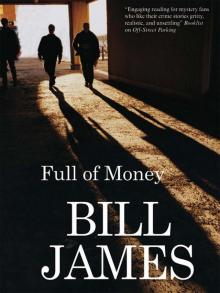 Full of Money
Full of Money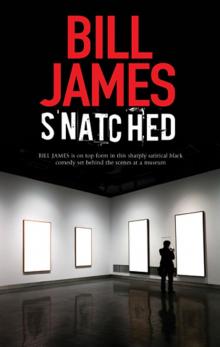 Snatched
Snatched